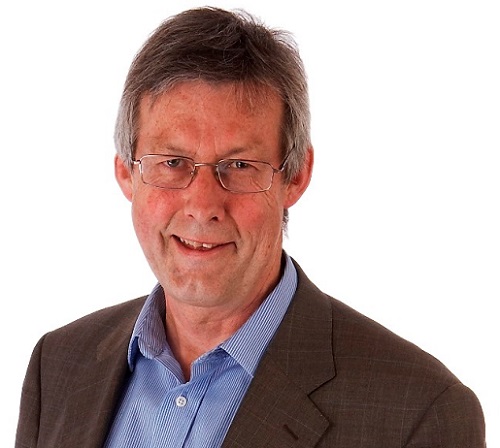Walk, cycle, or get in your car. There are no other acceptable options – unless you are key worker. Right now, our transport options have shrunk. Active or inactive (car) travel: take your pick.
These are adaptations needed to combat the virus, while ahead lie adaptations needed to save the planet. Right now, the virus dominates, and we all understand that. Before we get back to saving the planet – in which the transport sector will have to play a leading role – there is going to be, this summer, a transition period. A period in which travelling abroad might remain off-limits, but for domestic travel, restrictions are already eased. As a consequence, the highway network faces a summer of intense pressure, with huge demand for domestic holiday breaks after the lock-down These might be limited to day-out travel (as now) or relaxed to permit stay-away too. It's hard not to see a summer of traffic jams ahead. Car showrooms will shortly re-open.
True, some adaptations have been made – in cities, at least – to accommodate the surge in active travel, with for example, lanes taken out of general traffic use and set aside for cyclists. Other measures are cruder – car parks at beauty spots closed to manage visitor numbers.
But car travel is a bargain right now: petrol prices are down to 106p/litre (unleaded) and expected to fall further, with crude oil prices at record lows. Cheap travel on the open road.
The sharp reduction in road traffic has been a revelation – down to 1955 levels during lock-down before starting slowly to rise again. It hasn't gone unnoticed. Clean air that smells less, helps asthmatics breathe and the natural world, it would seem, thrive. Fewer road accidents – and so less call on A&E departments, just when it's been needed. Ambulances able to get people to hospital without being held up in traffic. Cyclists able to hear a car coming up behind them. The quietness of it all.
People know it can't last. But we have glimpsed together what life would be like if traffic levels were suppressed, if only essential journeys were allowed, as if transport planners had been allowed to play out their favourite thought experiment for real. Can we ever have that again – or must we return to 'normal'?
You might believe, that, with technology-based measures taken in response to the environmental crisis, with for instance a full conversion of road vehicles to electric traction, we could get back to these better, clean-air conditions driven by the net zero carbon necessity, helped by a restoration of public transport in due course. But there would still be poor air quality (particulates from rubber tyres being a key culprit); there would still be day-long congestion on many roads and sadly, traffic 'accident' levels will still be far too high. Clean air, quiet times – just a memory of the lockdown period.
It's time to do the previously unthinkable if we are to avoid national roads grid-lock this summer. We need to give a signal that starts the de-carbonisation journey. We need the Chancellor to announce an increase in fuel duty right away. An increase of 20p/litre would still leave fuel costing less at the pump than a year ago.
In the past, fuel duty was raised (along with levies on alcohol and tobacco) to help modify behaviour that led to increased health care costs and increase Treasury income. The main purpose now is to manage demand. We have no other tool available to contain congestion.
Such a move would be unthinkable without public support, and that will need to be built. There will be objections: how could we think of making the commute of essential workers such as nurses more expensive at this time? To which the answer is that if we don't, those essential workers are going to be held up in rapidly congesting roads. If we don't, there will be much more car travel and so (sadly) many more traffic accidents and renewed pressure on A&E departments. If we don't, the pattern of recent years in which people have traded up to bigger, but lower mpg, cars will continue.
This would be a one-off shift at a (hopefully) unique time for the nation. It is not a return to an annual fuel tax uplift.
The nation, through lock-down, has shown a remarkable ability to act in our collective rather than our personal interests. In doing so it has glimpsed what could be: a clean air future. We need a campaign to show how this can be made a reality.
For the essential workers, the nurses, who cannot readily be made exempt from fuel taxes, the right answer is, of course, to increase their pay levels. With say 15p on fuel, that would make a great Treasury package, Rishi.

Jim Steer, Director, Greengauge 21


